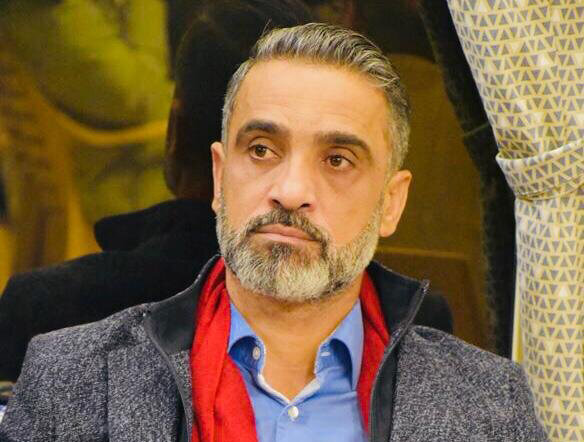Academic says West has interest in continuation of status quo in Lebanon

TEHRAN - A Lebanese political researcher says the Western powers prefer Lebanon to struggle crises without government.
“As for the issue of forming a government, the international efforts are nominal and not serious, while the West has an interest in the continuation of this existing status quo,” Tariq Aboud tells the Tehran Times.
However, Aboud notes, “The Western powers prefer Lebanon not to slip towards a comprehensive collapse that can create security threat which contradicts the interests of the West in Lebanon.”
Observers believe everything that is happening in Lebanon is due to the inability of successive governments coupled with the incapability of the Lebanese establishment to provide basic infrastructure after decades.
Now the main question is why America’s agents in Lebanon fiercely oppose any assistance, investment or cooperation with China, Russia or Iran.
“Moscow has tried to offer profitable investment projects for both Lebanese and Russian sides, but it has faced repulsion by the Lebanese deep state with an octopus network of political and financial interests,” the professor at the Lebanese International University remarks.
Following is the text of the interview:
Q: What parties prevent the formation of a new government in Lebanon?
A: When we address the Lebanese government, we face external obstacles besides the internal complexities, which intersect at a pivotal moment in the history of Lebanon and the region.
Add to it the sterility of the Lebanese political system, which is facing now great challenges, as it has failed more than once to manage itself.
There are also personal, political and electoral interests of the two sides involved in failing to form a government. The combination of all these factors has opened a dark chapter in the Lebanese political scene.
Q: How do you evaluate international efforts to help Lebanon's economy and the formation of a government?
A: It is clear that there is an American reluctance to any aid to Lebanon at the present time, while the country is struggling to save its economy from the abyss.
Meanwhile, the Americans want to take advantage of this crisis to extract political concessions, and to put pressure on the resistance axis in Lebanon by inciting their social base and political allies against the axis.
As for the issue of forming a government, the international efforts are verbal and not serious. The West also has an interest in the continuation of this existing status quo.
However, the Western powers prefer Lebanon not to slip towards a comprehensive collapse that can create a security threat that contradicts the interests of the West in Lebanon.
Q: Is there a Russian desire to expand its influence in Lebanon and confront America there?
A: Russia is present in the Lebanese scene but cautiously because it knows the complexities of the political scene, and is aware of the deep American influence in Lebanese institutions and among Lebanese politicians.
Moscow has tried to offer profitable investment projects for both Lebanese and Russian sides, but it has faced repulsion by the Lebanese deep state with an octopus network of political and financial interests, in addition to the United States' reluctance to any investment that comes from the East, China, Russia, Iran, and others.
Q: How do you see the U.S. policy towards Lebanon under the Biden presidency?
A: The Biden administration wants to cool the tensions in the region, but it does not want to lose the points that the Trump administration has achieved through the siege of Lebanon. The Americans today want to get rid of the region’s burdens and concerns, but at the same time, they want to preserve their interests and keep Israel secure by restricting its opponents. They make every effort to obstruct Chinese-Russian extension to fill the void that Washington will leave in the region.
